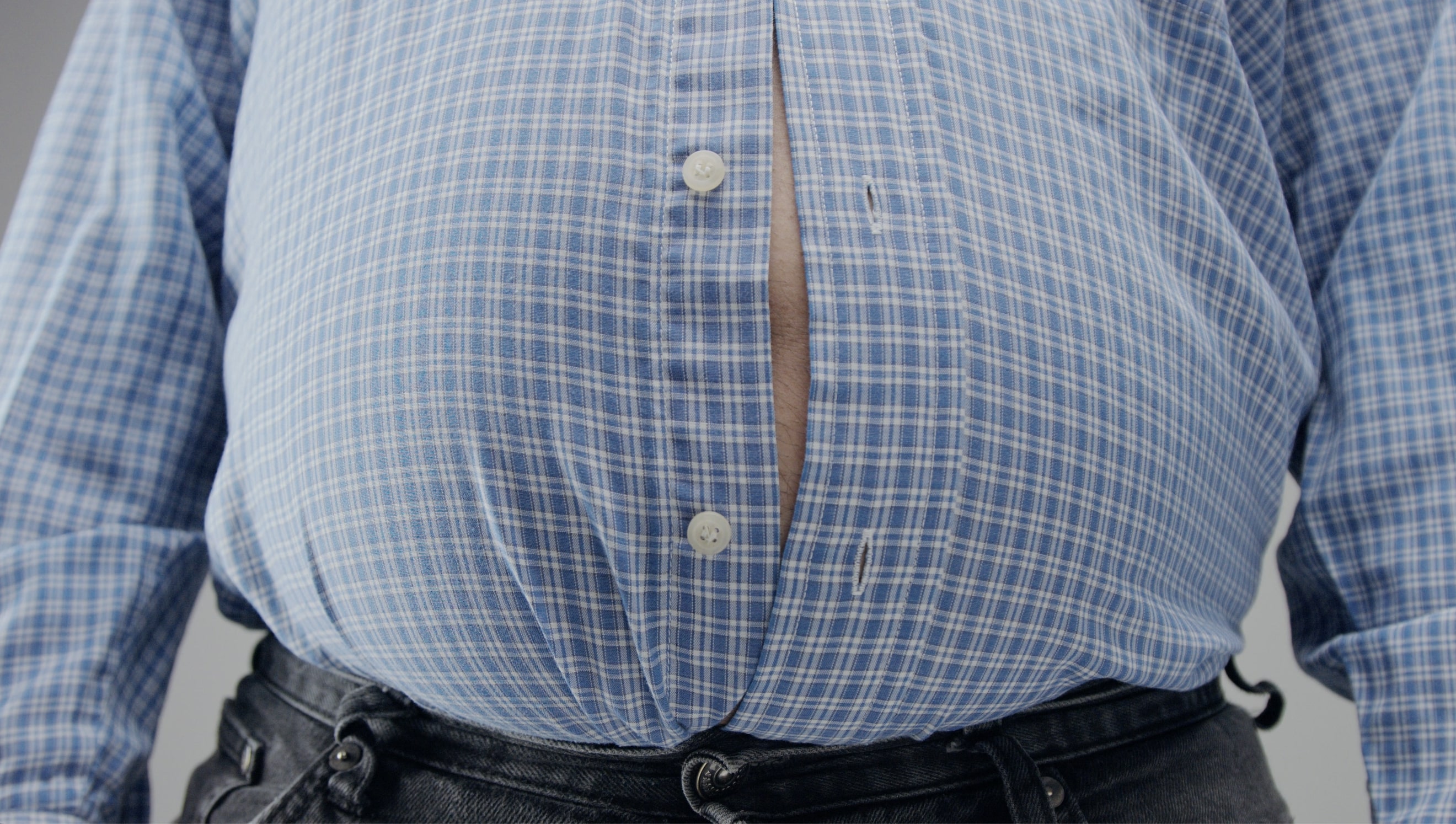Bariatric Surgery for Morbid Obesity as a Path to a Healthier Life
It happens often. A patient who has battled morbid obesity for years and feels like losing the fight. After trying diet and exercise programs, nothing worked long-term. Her weight affected every part of her life, with simple tasks becoming a struggle. Her health was getting worse, with high blood pressure and pre-diabetes looming. She felt trapped and unmotivated.
Then we started talking about bariatric surgery for morbid obesity. It wasn't an easy decision, but after talking about it, it seemed like the best way to start a new chapter. It wasn't a magic cure, but it gave her the tool she needed to make lasting changes. Today, she's healthier than she has been in years. She's active, her health markers have improved, and she feels like herself again. This is just one story. But for many who struggle with morbid obesity, it holds the key to unlocking a healthier, more active life.
Below we will take a look at what morbid obesity is and how bariatric surgery can help.
Understanding Morbid Obesity
Morbid obesity is much more than just being overweight. It's a complex disease that can cause severe health problems and a shorter life span. What is considered morbid obesity by the book? Doctors classify it using the Body Mass Index (BMI), a measurement that uses your weight and height. A BMI of 40 or higher, or a BMI of 35, joined with other serious health conditions. The list of health issues linked to it is extensive and can include:
- Type 2 diabetes
- High blood pressure (hypertension)
- Heart disease
- Sleep apnea
- Joint pain and mobility issues
- Certain types of cancer
As we've seen in the case of the patient mentioned in the beginning, for many people with morbid obesity, traditional weight loss methods like diet and exercise alone most often don't lead to long-term success. This is where bariatric surgery for morbid obesity comes in as a medically proven and effective option.
What is Bariatric Surgery for Morbid Obesity?
When we talk about bariatric surgery, we have in mind a medical procedure for people with morbid obesity. It's not cosmetic surgery. Its main goal is to help significantly lower the number on the scale and improve obesity-related health conditions. It works by physically changing the digestive system, which affects how much food you can eat and how your body absorbs nutrients. The changes it creates are what lead to significant and sustained weight loss.
Are You The Right Candidate for Bariatric Surgery?
Not everyone with excess weight is a candidate for bariatric surgery for morbid obesity. Doctors need to follow specific guidelines, based on which they decide if bariatric surgery is a safe and good option for you. But these are the overall main criteria:
- Body Mass Index (BMI): A BMI of 40 or higher, or a BMI of 35 to 39.9 with at least one serious weight-related health problem from the list we've already written ( like type 2 diabetes, high blood pressure, or severe sleep apnea).
- Failed Previous Attempts: You have tried and failed to lose weight through other methods, like diet and exercise, under medical supervision.
- Mental and Physical Readiness: This is very important. You have to be emotionally ready for the changes after surgery. You also need to be committed to following a new lifestyle, including diet changes and exercise. That is also the reason that a comprehensive evaluation by a medical team, including a surgeon, dietitian, and psychologist, is almost always part of the process.
Common Bariatric Surgery Procedures
What are the bariatric surgeries for morbid obesity? There are a few different types of them. Each one works differently, and your doctor will help you decide which option is best for you.
Gastric Sleeve Surgery (Sleeve Gastrectomy)
This is one of the most common procedures, where the surgeon removes about 80% of the stomach, creating a smaller, tube-like pouch.
- How it works: After the surgery, your stomach is smaller, which makes you feel full faster. Gastric sleeve surgery also reduces the production of the hunger hormone ghrelin, which helps you feel less hungry.
- Pros: It's a simpler procedure than some others, and it does not involve rerouting the intestines. Also, the recovery is often relatively fast.
- Cons: It is not reversible. In other words, changes made to your stomach are permanent. There is a risk of nutritional deficiencies, although less so than with gastric bypass.
Gastric Bypass Surgery (Roux-en-Y)
Also known as Roux-en-Y gastric bypass, this procedure is more complex than gastric sleeve surgery. The surgeon creates a small pouch at the top of the stomach and then connects a part of the small intestine directly to this pouch.
- How it works: The procedure limits how much food you can eat and also changes how your body absorbs nutrients.
- Pros: It often results in significant long-term weight loss. Consequently, it can also lead to a quick improvement in conditions like type 2 diabetes and high blood pressure.
- Cons: It is a more complex surgery with a higher risk of complications. You may need to take vitamin and mineral supplements for life because of the changes in nutrient absorption.
Adjustable Gastric Band
The least invasive of the three procedures we are looking into is the adjustable gastric band. During the procedure, a surgeon places an inflatable band around the top of the stomach to create a small pouch. The band can be tightened or loosened over time.
- How it works: The small pouch limits the amount of food you can eat at one time, making you feel full faster.
- Pros: It is a less invasive surgery. It is reversible and adjustable, which means the band can be removed or altered if needed. The reversibility might be the main factor for some patients to choose or at least start with this option.
- Cons: It leads to less weight loss on average than other surgeries. The band can cause problems over time, such as slipping or erosion.
The New Life After Bariatric Surgery
Surgery is only the first step. The real work begins after. It's a journey that requires commitment and support.
Diet and Nutrition Changes
Even before the surgery, it is recommended that you start adjusting your diet and food intake so that you are better prepared for the surgery, but most importantly, for everyday life after. You will have a dietitian's support every step of the way. After a bariatric surgery, you will most often need to start with a liquid diet, then move to pureed foods, and finally to solid foods over several weeks. Your eating habits will also need to change by eating smaller meals, chewing food well, and focusing on protein intake. A dietitian will be a key part of your care team, helping you navigate these changes and avoid nutritional deficiencies, so you keep improving day by day..
Long-Term Lifestyle Adjustments
Physical Activity
Regular exercise must become part of your everyday life for both weight loss and maintaining it. It also helps with overall health, muscle strength, and mood. Start with low-impact activities and gradually increase as you feel stronger.
Follow-Up Care
You will have regular check-ups with your doctor, dietitian, and, if needed, with some other professional from the bariatric center. It is important that they monitor your health and make sure you are getting the right nutrients. These appointments are vital for your long-term success and make sure you don't miss them and have an open conversation with the specialists, not just about the good parts and progress, but also if you have any struggles..
Mental and Emotional Support
The emotional journey is just as important as the physical one; sometimes, it is actually the one that makes the difference in the long term. It's normal to have feelings of stress or anxiety. You can join support groups or therapy that help you deal with the changes in your life and your relationship with food. It is beneficial to be surrounded by people who are or have been in the same situation as you.
Reclaiming Health With Bariatric Surgery
Morbid obesity can be a life-threatening condition that affects far more than just weight. Its effect extends to nearly every system in the body, and with that, increases the risk of chronic diseases like type 2 diabetes, heart disease, and sleep apnea. Bariatric surgery for morbid obesity can be the go-to option for those who have tried diet and exercise but without lasting results. But be aware that it cannot be taken as an instant cure, but a tool to overcome morbid obesity, improve health outcomes, and reclaim your quality of life.
FAQ
What is morbid obesity?
Morbid obesity is a severe form of obesity defined as having a Body Mass Index (BMI) of 40 or higher, or 35 with serious health conditions like type 2 diabetes, high blood pressure, or sleep apnea. It can shorten lifespan and increase the risk of multiple chronic diseases.
What is bariatric surgery?
Bariatric surgery is a medical procedure that alters the digestive system to help patients with morbid obesity achieve significant, long-term weight loss. It is not cosmetic surgery. It is performed to improve overall health and reduce obesity-related risks.
Who is eligible for bariatric surgery?
Eligible candidates typically have:
- A BMI of 40+ or a BMI of 35–39.9 with serious health issues
- Failed attempts at weight loss through diet and exercise
- Readiness to commit to long-term lifestyle changes after surgery
{{cta_ba}}








